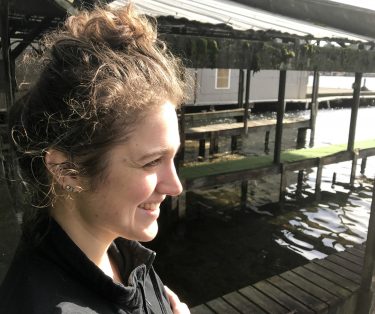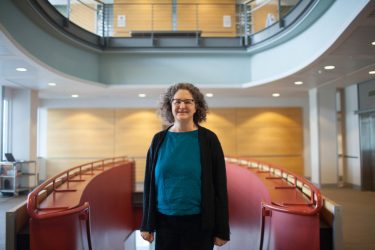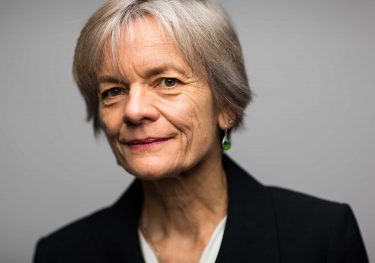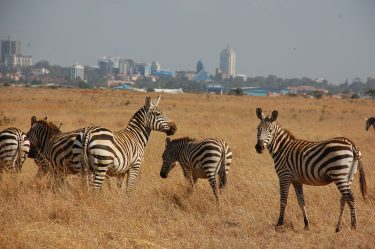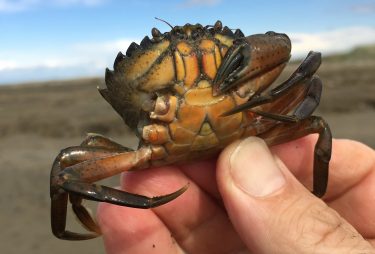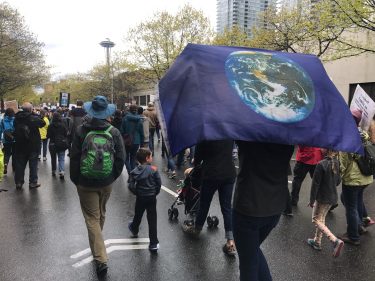
On Saturday, April 22, I joined thousands of scientists proudly marching in the streets with signs declaring that science is nonpartisan, saves lives and is critical to our collective future. Scientists stood shoulder-to-shoulder with people from all walks of life who endorsed our social contract: investments in science help us create a better world.
Fast forward to Sunday; I’m drinking coffee in front of the fireplace, secretly happy that the pouring rain prevents me from vigorous exercise. Perusing The New York Times special magazine section on climate change, I was pleased to see College of the Environment faculty Peter Kahn, David Battisti and Tom Ackerman quoted. In fact, Tom’s comment stopped me in my tracks: “We are doing an experiment now that we don’t understand.”
In an article about geoengineering and its potential to slow climate change, Tom made an important point. Like it or not, we have already embarked on a planetary-scale experiment where the impacts of elevated carbon dioxide on Earth’s systems will play out during our lifetimes.
Climate change, this “experiment we don’t understand,” is a classic wicked problem with no clear-cut solution. More troubling, wicked problems present us with two different traps, warns Ruth DeFries of Columbia University. We risk oversimplifying them and assume that technical tools provide a straightforward quick fix. Alternatively, we can trap ourselves by making the problem overly complex and demanding a perfect solution, resulting in paralysis.
What to do?
Our best bet is adaptive management: incremental approaches that test solutions, monitor the results and refine goals and strategies. But as Nives Dolsak and Phil Levin have argued, adaptive management only works when scientists work closely and iteratively with the people who create institutions and policies. Lots of institutions and lots of policies. Local to global and back again to local.
This is messy work: failure is an expected part of the process as we try and retool new approaches. There are no easy answers — but if adaptive management is undertaken well, with patience and assumed best intentions, these false starts give rise to critical insights that lead to better outcomes for communities.
Circling back to the March for Science: What should we be asking from society and promising in return? Of course we want to see science respected and supported. But we need more in this time of uncertainty. As scientists, we cannot promise easy cures for all that ails the Earth, and we won’t succeed in the hard work that’s required if we go it alone. We need society as a patient and engaged partner in finding the way forward.
Lisa J. Graumlich
Dean, College of the Environment
Mary Laird Wood Professor













